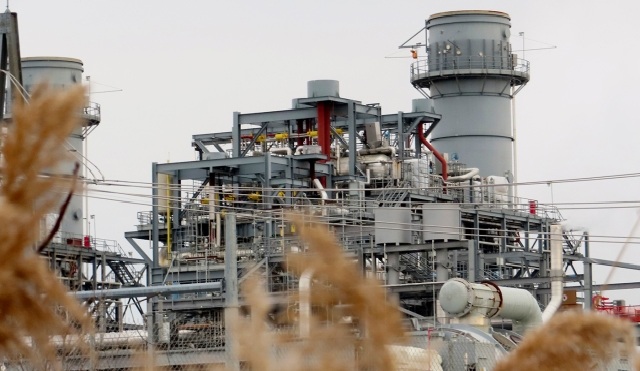Rachel Frazin
The Biden administration faces what could be one of its most consequential climate decisions yet as the Environmental Protection Agency (EPA) weighs how to regulate power plants.
The power sector is a major contributor to climate change, making up a quarter of total U.S. greenhouse gas emissions in 2021.
The agency is expected to soon propose new regulations that aim to limit how much carbon power plants can emit, but the specifics of how they will do so is unclear.
Nevertheless, climate activists say the rules will be monumental in the fight against global warming.
David Doniger, senior strategic director for the Natural Resources Defense Council’s Climate & Clean Energy Program, said that cutting emissions from vehicles — which the Biden administration recently proposed to do — and from power plants are the two most important climate regulations that the administration can undertake.
“In order to meet the president’s target and to meet the climate crisis, you have to curb the emissions of these two top sources and more,” Doniger said. “Time is only getting shorter and things are only getting more urgent.”
The stringency of power plant standards is an issue that has ping-ponged between administrations: The Obama administration’s Clean Power Plan was expected to reduce emissions about 38 times as much by 2030 as the Trump rule that succeeded it.
The Biden administration is expected to propose its own regulations in the coming weeks, but what the contents of the rule will be is not totally clear.
In addition to hoping the EPA requires the strongest-possible emissions technologies, Holly Burke, spokesperson for environmental group Evergreen, said that her group is looking to see whether the EPA addresses both existing coal and gas power plants — as opposed to just coal.
Modeling from the Natural Resources Defense Council (NRDC) found that this could make a significant difference in terms of emissions.
The group determined that combined with incentives from the Democrats’ climate, tax and healthcare bill, power sector emissions could fall to 77 percent below their 2005 levels in 2030 — if the EPA regulates existing gas plants in addition to coal and new gas plants.
If the agency doesn’t regulate existing gas plants, emissions will only fall 70 percent compared to where they were in 2005.
President Biden has said that he hopes to see the country get 100 percent of its power from non-emitting sources by 2035.
“It’s hard to overstate the importance of these rules,” said Burke. “Biden can’t stay on track for his climate commitments without ambitious carbon standards for both new and existing power plants.”
She added that cutting power sector emissions are not only important for current electricity uses, but also for future uses, as, when the transportation sector decarbonizes, it may turn increasingly to electrification.
In addition to which fossil fuel plants it regulates, the EPA also has to choose what it finds to be the “best system of emissions reductions” and set climate standards based on the possible emissions reduction from that technology.
A white paper from the EPA from last year lays out a number of paths that the agency could take, including requiring technology to make power plants run more efficiently and mandating that plants use technology to capture the carbon emissions they create.
The NRDC’s assessment says that the administration should base its requirements on the emissions reductions achievable via carbon capture.
The Supreme Court took away one potential additional tool from the EPA last year, when the court’s conservative majority said that the agency can’t mandate that power companies shift from high-emitting sources like coal to climate-friendly sources like renewables.
Any new standards issued by the Biden administration are likely to face pushback — including potential legal challenges — from Republicans and the fossil fuel industry.
Rich Nolan, president and CEO of the National Mining Association, which represents the coal industry, said that strict regulations could force coal power offline.
“It’s driving up the cost for utilities to comply,” Nolan said. “This has to be done carefully and at speed because the system’s not going to be able to handle it.”
“We’re not opposed to environmental controls but we just have to do it in a thoughtful manner that doesn’t damage the consumers,” he added. “This has to be done carefully and at speed because the system’s not going to be able to handle it.
Meanwhile, the standards come at a time of tension between climate activists and the Biden administration, particularly following Biden’s approval of the Willow Project — a 30-year drilling project in Alaska.
Burke said a strong standard will help Biden show climate-minded voters that he is still committed to the issue.
“It’s an opportunity to prove to the climate voters who elected him and helped him secure the White House in 2020 that he is still really serious about delivering on these commitments,” she said.
Courtesy: thehill







